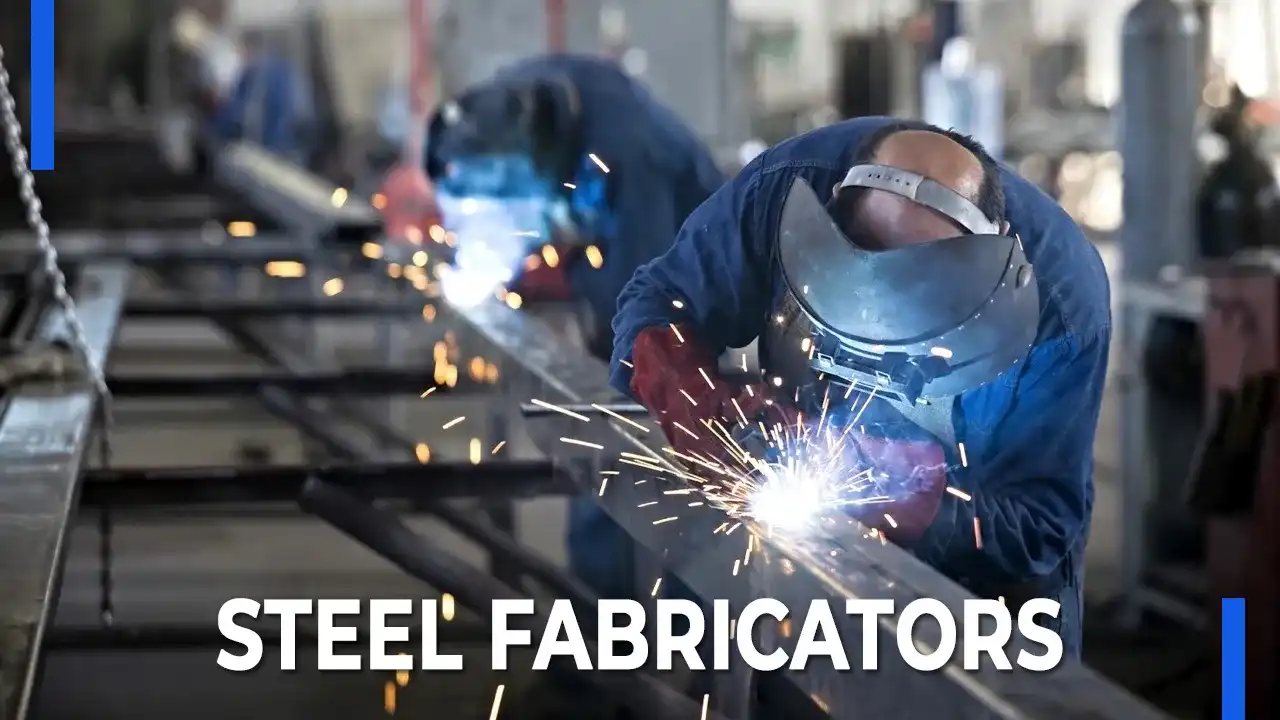28 May 2024

Steel fabrication demands precision to ensure quality and reliability. Even minor deviations from measurements or designs can lead to structural failures, safety risks, and costly repairs. Achieving precision requires skilled workers, advanced machinery, and strict quality control. Attention to detail, following industry regulations, and careful planning are crucial for producing high-quality steel products that meet client requirements and project success. In this blog, we'll explore why precision is vital in steel fabrication in UAE.
Precision steel fabrication uses advanced processes and techniques, such as forming, welding, punching, and cutting, to manufacture high-precision components for diverse applications. These precision techniques allow for the creation of identical steel parts which are then used in manufacturing, assembly, or construction. By using precise machinery, steel products are made with extreme accuracy, following specific requirements. This precision allows for the production of exact duplicates. As the demand for precise applications increases, bespoke precision machining in steel fabrication becomes more important. It ensures highly accurate and consistent steel components
Precision in steel fabrication ensures that the steel components fit together easily, resulting in a structurally sound and durable final product. Accurate measurements and cutting techniques prevent gaps, misalignments, or unnecessary stresses that could compromise the overall integrity of the structure.
Generally construction of large-scale structures, such as buildings, bridges, or industrial facilities require steel fabrication services. Therefore, for construction precise fabrication techniques are required to minimize the risk of structural failures. These failures could potentially lead to fatal consequences and could risk human lives. Paying close attention to detail is crucial for maintaining safety standards.
Precision plays a crucial role to steel fabricators. When we take accurate measurements, use precise cutting techniques, and assemble components carefully, then we minimize the defects, rework, and avoid unnecessary waste. The end result is a high-quality product that meets or exceeds customer expectations and industry standards.
Lack of precision in steel fabrication can lead to costly mistakes, such as material waste, rework, delays, and potential structural issues that require expensive repairs or replacements. Precise fabrication practices optimize material usage, reduce errors, and minimize unnecessary expenses, resulting in cost savings.
Precision in steel fabrication streamlines the construction process by ensuring that components fit together correctly on the first attempt. This reduces delays caused by rework or adjustments, allowing projects to adhere to predetermined timelines and avoiding costly overruns.
In many architectural and structural projects, the visual appeal of the finished product is crucial. Precise fabrication techniques ensure clean lines, symmetry, and a polished appearance, contributing to the overall aesthetic value of the structure.
Accurately fabricated steel components simplify the assembly process, as they fit together seamlessly without the need for excessive adjustments or modifications on-site. This reduces labor costs, improves efficiency, and minimizes potential errors during the installation phase.
Steel fabrication often involves following strict building codes, safety regulations, and industry standards. Precision is essential for ensuring compliance with these guidelines, preventing potential legal issues or fines due to non-conformance.
Consistent precision in steel fabrication builds a reputation for quality and reliability among clients, contractors, and industry professionals. This trust can lead to repeat business, positive word-of-mouth, and a competitive advantage in the market.
Precision is essential in steel fabrication to ensure safety, quality, efficiency, and trust. Accurate measurements, cutting techniques, and careful assembly are essential to minimize defects, rework, material waste, and potential structural failures that could compromise safety or quality standards. By prioritizing precision, steel fabrication companies in UAE can optimize material usage, streamline construction processes, meet customer expectations, and prevent costly mistakes, delays, or legal issues. This not only saves money and time but also builds a reputation of trust and reliability. Precise industrial and structural steel fabrication services deliver high-quality, dependable, and cost-effective products that meet industry standards. It ensures structural integrity, adheres to project timelines, maintains aesthetic appeal, and facilitates ease of assembly. Ultimately, precision is vital for steel fabricators to create safe, reliable, and visually appealing structures while maintaining cost efficiency and customer satisfaction.
Achieving precision in steel fabrication requires not only skilled workers and advanced machinery but also a deep understanding of different steel grades and their applications, read our next blog "Understanding Steel Grades and their Applications for detailed understanding about various types of steels and their applications.